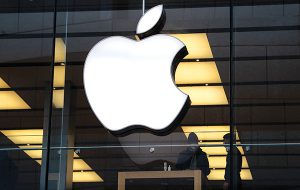Bloomberg
Apple Inc shareholders approved outside proposals recommending audits of the company’s civil-rights impact and a public report on its use of concealment clauses in employment agreements, marking a rare instance of investors defying the tech giant.
The votes were part of Apple’s annual shareholder meeting, held virtually for the second year in a row. Investors also reelected the company’s board and approved its executive compensation plan.
The proposal on civil-rights audits is part of a broader push to get corporations to track if, and how, they contribute to racial inequities. Shareholders at major US companies, including Tyson Foods Inc, Citigroup Inc and BlackRock Inc, have approved similar measures.
“Now it’s time for Apple to establish an honest third-party civil-rights audit of the company’s commitments to equality and fairness,†Dieter Waizenegger, executive director of the labour-backed firm SOC Investment Group, said in a statement after the meeting.
In opposing the measure, Apple argued that it already meets the objectives of the proposal. That includes conducting impact assessments and engaging with communities. The company described the audit recommended by the proposal as “broad and unfocused.â€
“Civil rights is something we care deeply about and always have,†CEO Tim Cook said.
The proposal on concealment clauses had a come-from-behind win. Apple initially said the measure failed, but when final vote totals were tallied, it prevailed by a narrow margin. That proposal aims to shed light on employments agreements that could bar workers from discussing unlawful acts, such as harassment and discrimination.
In arguing against the measure, Apple said its employees were already permitted to speak openly about unlawful conduct in the workplace. It also agreed to add wording to its separation agreements that would spell that out.
Shareholders voted on 10 proposals, including four from Apple and six from outside investors. Investors followed the company’s recommendations on eight of them.
Cook and General Counsel Kate Adams took the form of Memoji images when they spoke at the meeting, relying on the virtual characters that Apple uses for iMessage and other services.
 The Gulf Time Newspaper One of the finest business newspapers in the UAE brought to you by our professional writers and editors.
The Gulf Time Newspaper One of the finest business newspapers in the UAE brought to you by our professional writers and editors.
